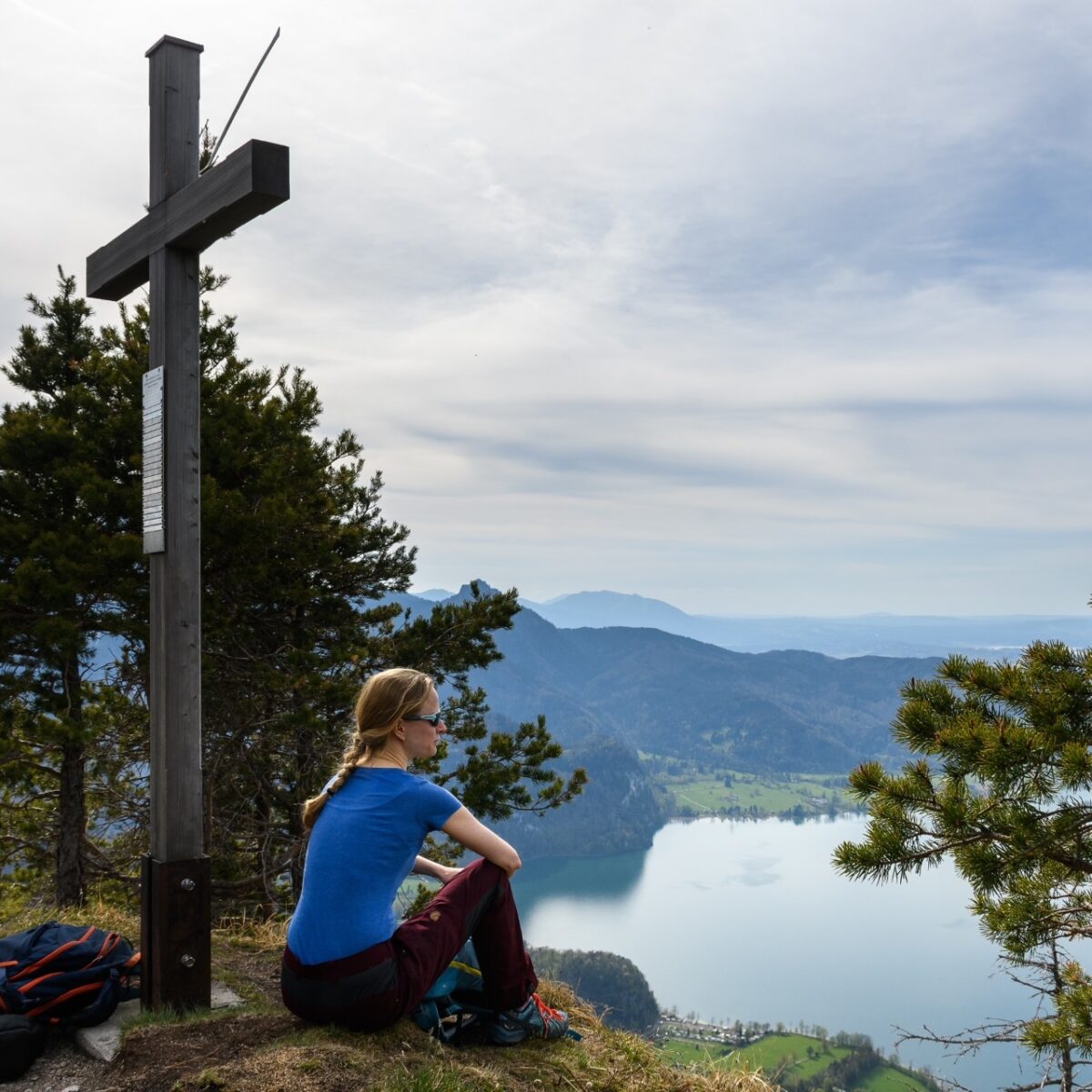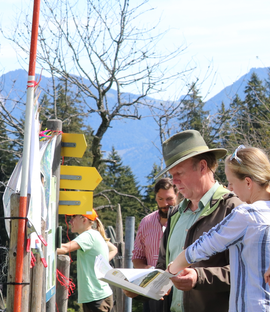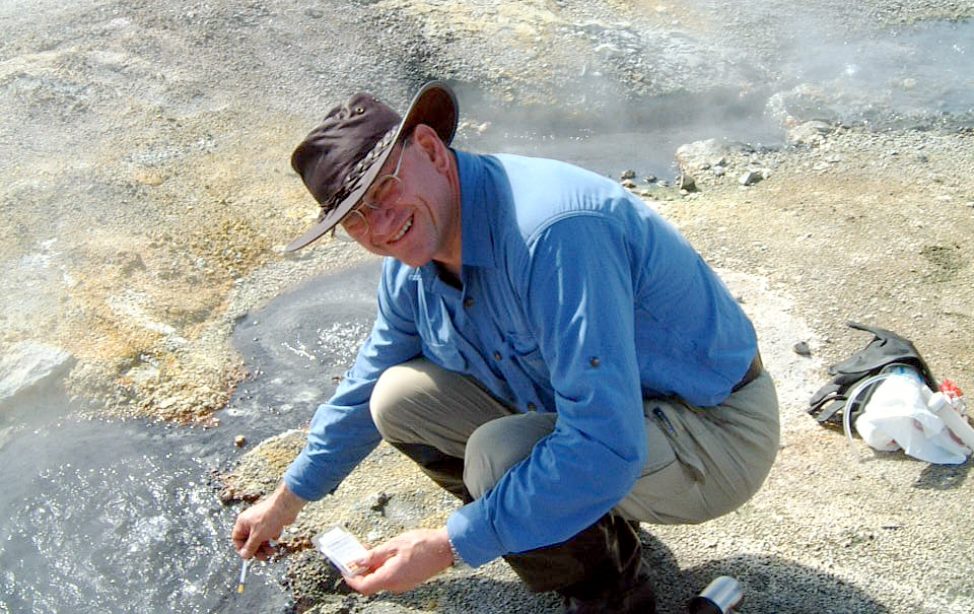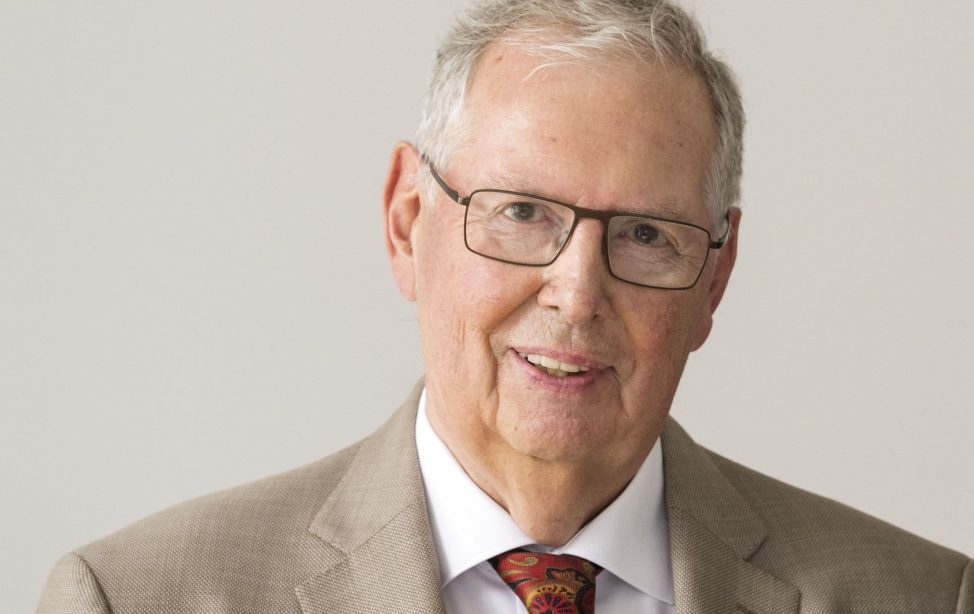
Agnes Wagner also enjoys getting out into nature in her private life, for example hiking on the Jochberg (Picture: Matthias Breuel).
“I realized how fragile the whole system is.”
Back in Germany, Agnes Wagner first completed her Bachelor’s degree and decided to continue studying for a Master’s degree in Environmental Planning and Engineering Ecology. “My time at TUM was very valuable for me,” she says. The campus in Weihenstephan was designed in such a way that you could spend a lot of time together, she is still friends with some of her fellow students today and the excursions were legendary. Agnes Wagner still remembers the excursions with her TUM professor at the time, Jörg Pfadenhauer, who held the Chair of Renaturation Ecology. Once they were standing in dripping rain in a moor in Bavaria, their rubber boots full of peat, their hoods soaked with water. “Our professor was in such a good mood, even the wetness was no match for it,” she says.
THE WORKPLACE: THE NATURE OF UPPER BAVARIA
Today, Agnes Wagner works as a so-called “Natura 2000” protected area manager at the Higher Nature Conservation Authority at the government of Upper Bavaria. With the “Natura 2000” project, the European Union aims to create protected areas to preserve endangered species and habitats. This ecological network is divided into bird sanctuaries and fauna-flora-habitat (FFH) areas and is the largest contiguous system of protected areas in the world. This includes 745 areas covering around 800,000 hectares in Bavaria, which is more than eleven percent of the state’s land area. Agnes Wagner and her team look after around 170 areas in Upper Bavaria. They draw up management plans, inform citizens and bring together associations, authorities, mountain pasture farmers and farmers.
Many different views and interests often come together in these discussions: sometimes Agnes Wagner and her colleagues from the fishing, water and forestry industries also get emotional reactions. “You need a thick skin in this job,” she says. At the same time, she also understands the anger in some cases. “Change is always difficult,” she says, “and sometimes you just need to let off steam.” The conversations are also often about fundamental issues that do not fall within her remit: How do we deal with the wolf? What about beaver protection? And why was the tree at the crossroads felled recently?
IN THE END, THERE IS ALWAYS A JOINT SOLUTION
But the team spirit is great, says Agnes Wagner, and representatives of interest groups often come up to her again at the end to thank her. In summer, Agnes Wagner is out and about every two weeks. For example, she travels to Lake Chiemsee and, together with the planning office, reviews a project in the Alps that she and her team have spent years working on and finding solutions for. And if she’s lucky, she can even see her success – grasses growing or black grouse hissing more abundantly from their beaks. These are the moments when she realizes that her efforts have been worthwhile.

As a protected area manager, Agnes Wagner conducts many informative discussions. Here with a farmer about the Geigelstein project (Image: Annika Aurbach).

Agnes Wagner (Picture: private).
Bachelor of Landscape Architecture and Landscape Planning 2013, Master of Environmental Planning and Engineering Ecology 2015
After graduating from TUM, Agnes Wagner moved into the private sector, where she worked for a large furniture company and was responsible for improving sustainability in production. In particular, she was responsible for improving the circular economy within the company.
The TUM Alumna then went to the USA to work for a foundation that supports Native Americans in South America and North Dakota. There she worked on a project to distribute small stoves made of bricks and clay and to provide solar systems for the Oglala-Latkota. Since July 2020, Agnes Wagner has been team leader for “Natura 2000” areas at the government of Upper Bavaria.


